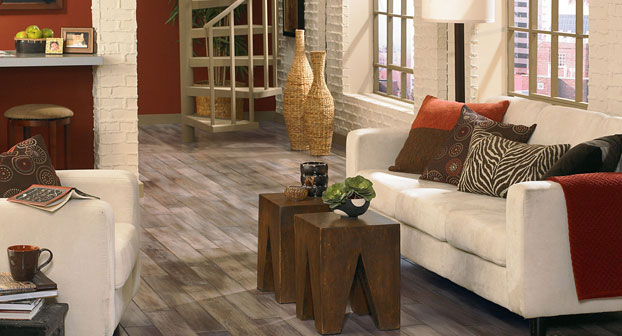Importance of Moisture Testing Before Hardwood Installation
If you have a crawl space, it’s time to fully inspect the ground beneath your home to assess the moisture content of the soil. Ask yourself this question… Do you have any areas that are wet or any pools of water? If you have either of these issues, fixing them is a must. Failing to address these problems will result in cupping later on, a condition caused by the wood remaining damp on the underside but not on the top.
Additionally, hardwood flooring manufacturers recommend that you ensure all crawl spaces have at least 6 mil polyethylene plastic sheeting placed on the ground beneath the house to prevent the wood flooring from being affected by natural ground moisture.
Homes with concrete foundations will undergo different pre-installation tests in regard to foundation. Concrete is mixed with water; thus, moisture will escape as the concrete ages.
Make sure your installer performs these tests before installation begins:
Perform a moisture test on concrete slabs by taping 7-10 18″x18″ pieces of plastic to your subfloor in different areas. Wait at least 18 hours, and if condensation develops, take steps to seal your concrete before installation. Another way to test the slab is to use a moisture meter, which is available for purchase at most hardware stores. (Acceptable moisture levels are 14% or less)
 Other tests to be performed by the installer are:
Other tests to be performed by the installer are:
- Calcium Chloride – Should not exceed 3 lbs per 24 hrs per 1000 square feet of area
- Radiant Heating Calcium Chloride – Should not exceed 1.5 lbs per 24 hrs per 1000 square feet of area.
- pH reading of the slab–An acceptable pH reading is between 6–9 on the pH scale.
DO NOT INSTALL your hardwood flooring on a concrete slab if you receive high readings on your Calcium Chloride and pH test. You will need to purchase a specific sealer in order to correct the humidity and calcium levels within your concrete slab.
One final note: Some cupping and crowning is a natural part of owning hardwood flooring, and not all cases indicate issues with your home.
Another step is testing the temperature and RH levels of your home before hardwood flooring is delivered. Most hardwood flooring manufacturers will not uphold a warranty claim if the floors are delivered to an improper environment. A LCD Thermo-Hygrometer was designed by hardwood flooring professionals to display this information.


